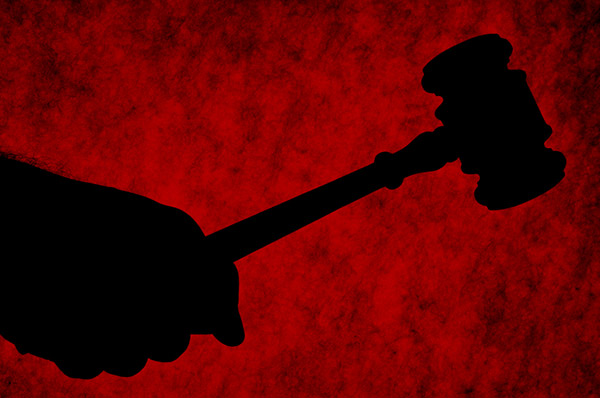UNDER PRESSURE: One-third of US judges stressed (INFOGRAPHIC)
By: Michaela Paukner, [email protected]//December 29, 2020//
UNDER PRESSURE: One-third of US judges stressed (INFOGRAPHIC)
By: Michaela Paukner, [email protected]//December 29, 2020//
Even before the COVID-19 pandemic, judges throughout the U.S. were stressed. Recent survey results from the American Bar Association found one-third of judges were experiencing the physical or mental effects of stress.
The 2020 Journal of the Professional Lawyer includes a report about stress and resiliency among the U.S. judiciary. The report analyzes survey results from more than 1,000 judges who were asked about their sources of stress, the effects of stress and their alcohol use, resiliency and stress management.
A panel conducted the survey before the COVID-19 pandemic. The authors of the report note that recent months have seen judges and the judicial system subjected to stress and tests of resiliency like never before.
“(T)here is no doubt it is having an impact,” an author’s note said. “It is our intention in this article to demonstrate the critical importance of resiliency to members of our judiciary and to our system of justice and to offer methods for engaging in those practices.”
The majority of respondents, about 84%, were white. About 5% of respondents were Hispanic, and another 5% were African-American. Among all the respondents, the average time on the bench was about 11.5 years.
The most prevalent sources of stress for the surveyed judges was knowledge of the importance and likely consequences of their decisions, and a heavy docket of cases. Just under 80% of judges named decisions as a source of stress, and about 73% were weighed down by their docket.
About one-third of the judges were feeling the effects of stress both physically and mentally. They reported fatigue, low energy, trouble sleeping and trouble concentrating. Women were more likely to report their symptoms than men.
The majority of judges aren’t turning to alcohol to deal with stress, although the actual numbers may be underreported. According to the study, more than 90% of respondents were rated in the low-risk category for an alcohol-use disorder.
Instead, the judiciary turns to exercise, relaxation techniques, support from friends and colleagues, and more to manage stress — exactly what the report’s authors recommend. The report emphasized building vicarious resilience, exercising regularly, getting enough sleep, practicing mindfulness and cultivating supportive relationships.
“(W)e recognize that social expectations of judges can stand in the way of beginning self-care and resilience strategies,” the report said. “By offering what might seem like very basic steps and recommendations, we hope to ease that path to better well-being.”
The report said judges and judicial associations will also benefit from developing support networks, planning instructional programming and events about well-being for court personnel, and working with lawyers’ organizations to promote resiliency in high-stress careers.
View highlights from the survey and tips for stress management that anyone can use.

[/box Follow @WLJReporter
Legal News
- Wisconsin DNR agrees to repeal anti-firearm rule
- Harris kicks off campaign for president with a rally in Wisconsin
- Wisconsin leads 26 governors to strengthen state and tribal child support enforcement act
- Wisconsin man charged with fleeing to Ireland to avoid prison term for Capitol riot role
- Wisconsin Supreme Court reveals September oral arguments calendar
- New Jersey man sentenced for series of violent assaults on members of the Orthodox Jewish Community
- Milwaukee County District Attorney, UWM police address Jewish threats
- With GOP convention over, Milwaukee weighs the benefits of hosting political rivals
- Secret Service head resigns as Congress formally investigates
- Milwaukee Police Department issues statement regarding video release policy
- GOP convention sets the stage for the Democratic convention in Chicago, activists and police say
- Survey: Harris has enough delegates to be nominee
Case Digests
- Ineffective Assistance of Counsel; Double Jeopardy; Sentencing
- Ineffective Assistance of Counsel; Sexual Assault-Prosecutorial Misconduct
- Contract-Negligence
- Criminal Law; Juvenile Law; Discovery
- Family Law; Child Support; Property Division First paragraph(s)
- Ineffective Assistance of Counsel- Exclusion of Evidence of Witness Bias
- Postconviction Relief-Sentencing-Ineffective Assistance of Counsel
- 14th Amendment – Due Process
- Criminal-Sentencing Guidelines – Enhancement
- Bankruptcy-Tax
- Civil Rights – 14th Amendment-Jury Instructions
- Contract; Foreclosure and Property











